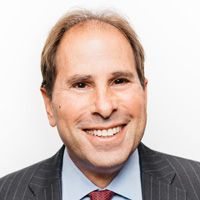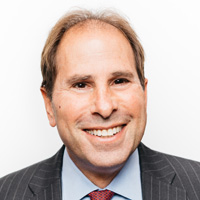Five New Year's Investment Resolutions
Investors should consider making New Year's resolutions to lead a healthier investment life in the coming year.


Profit and prosper with the best of Kiplinger's advice on investing, taxes, retirement, personal finance and much more. Delivered daily. Enter your email in the box and click Sign Me Up.
You are now subscribed
Your newsletter sign-up was successful
Want to add more newsletters?

Delivered daily
Kiplinger Today
Profit and prosper with the best of Kiplinger's advice on investing, taxes, retirement, personal finance and much more delivered daily. Smart money moves start here.

Sent five days a week
Kiplinger A Step Ahead
Get practical help to make better financial decisions in your everyday life, from spending to savings on top deals.

Delivered daily
Kiplinger Closing Bell
Get today's biggest financial and investing headlines delivered to your inbox every day the U.S. stock market is open.

Sent twice a week
Kiplinger Adviser Intel
Financial pros across the country share best practices and fresh tactics to preserve and grow your wealth.

Delivered weekly
Kiplinger Tax Tips
Trim your federal and state tax bills with practical tax-planning and tax-cutting strategies.

Sent twice a week
Kiplinger Retirement Tips
Your twice-a-week guide to planning and enjoying a financially secure and richly rewarding retirement

Sent bimonthly.
Kiplinger Adviser Angle
Insights for advisers, wealth managers and other financial professionals.

Sent twice a week
Kiplinger Investing Weekly
Your twice-a-week roundup of promising stocks, funds, companies and industries you should consider, ones you should avoid, and why.

Sent weekly for six weeks
Kiplinger Invest for Retirement
Your step-by-step six-part series on how to invest for retirement, from devising a successful strategy to exactly which investments to choose.
As we turn the calendar to 2025, investors should consider making New Year’s resolutions to lead a healthier investment life in the coming year. Here are some ideas:
1. Consume less news about your investments
A “media diet” can help reduce investors’ stress about the day-to-day market swings. Being overly sensitive to the latest headlines can lead to an “activity bias” of trading too much. Investors should aspire to a healthy balance between being well-informed and being overly stimulated by market news.
“Confirmation bias,” which is the tendency to seek opinions that align with one’s own, is another behavioral peril to avoid. The best investors seek out opposing opinions to test their investment decisions.
From just $107.88 $24.99 for Kiplinger Personal Finance
Become a smarter, better informed investor. Subscribe from just $107.88 $24.99, plus get up to 4 Special Issues

Sign up for Kiplinger’s Free Newsletters
Profit and prosper with the best of expert advice on investing, taxes, retirement, personal finance and more - straight to your e-mail.
Profit and prosper with the best of expert advice - straight to your e-mail.
2. Don’t let taxes dictate your investment decisions
The bull market in stocks has created significant gains, particularly for investors who own some of the big winners of recent years. Many investors are reluctant to take gains in their winners, frozen by the desire to avoid paying capital gains tax.
Taxes can be an obstacle to investment success if tax avoidance overrides an investor’s judgment about the prospects for the stock. It is important to evaluate whether recent winners will sustain success and to consider taking gains if the stock is unlikely to repeat prior success.
Investors should look for opportunities to offset losses with gains throughout the year and not just at year-end; investors should also look for losses in less obvious parts of a portfolio, such as in fixed-income holdings.
3. Remember that fundamentals outweigh politics
Although government policy is undeniably important, earnings growth, profit margins and valuations typically have a greater influence on stock market returns. Policy can help or hurt individual companies. Well-run companies benefiting from strong demand for their products and services can overcome higher taxes or regulatory burdens, but favorable government policy won’t necessarily be enough to rescue poorly run companies facing weak demand.
4. Plan a budget and asset allocation to look longer term
Most investors focus on a relatively short-term time horizon, with the early part of the new year dominated by prognostications for the year ahead. Focusing on the short term leads investors to stray from sound long-term asset allocation planning.
Investors should design a portfolio with long-term financial goals in mind, recognizing that goals typically are multiyear in nature. Investors should start the asset allocation process by identifying what financial goals they hope to achieve, what amounts will be needed to meet those goals and the timing of anticipated cash needs. Plans made with the best of intentions are often disrupted by unexpected surprises, such as medical emergencies or storm damage, so investors should set aside enough in cash or liquid investments to provide a cushion for unanticipated needs.
5. Expand your research network
Many industry leaders provide sound advice about how to be a more effective investor. For example, Howard Marks, co-founder and co-chairman of Oaktree Capital Management, is known for his thoughtful memos about different aspects of investing. His memos are informed by his decades of investing and are readable and helpful for novice investors as well as experienced investment professionals. Michael Cembalest, the chairman of Market and Investment Strategy for J.P. Morgan Asset Management, writes informative Eye on the Market articles on a wide range of investment and economic topics. Cembalest’s work is well-researched, often entertaining and informative.
Investors who start the new year resolving to lead a “healthier” investment life may have a more prosperous and calmer 2025.
Registration with any regulatory body should not be construed as an endorsement or an indicator of investment skill, acumen or experience. Investments in securities are not insured, protected or guaranteed and may result in loss of income and/or principal. Unless stated otherwise, any mention of specific securities or investments is for hypothetical and illustrative purposes only. Adviser’s clients may or may not hold the securities discussed in their portfolios. Adviser makes no representations that any of the securities discussed have been or will be profitable.
Related Content
- 25 Financial Moves to Consider Before December 31
- Asset Allocation for Retirees: Five Things to Consider
- How to Invest at Each Stage of Your Life
- A Simple Trick for Better Investing: Stop Timing the Market
The information provided here is not investment, tax or financial advice. You should consult with a licensed professional for advice concerning your specific situation.
Profit and prosper with the best of Kiplinger's advice on investing, taxes, retirement, personal finance and much more. Delivered daily. Enter your email in the box and click Sign Me Up.

Daniel S. Kern, CFA®, CFP®, chief investment officer of Nixon Peabody Trust Company, is responsible for overseeing the firm’s investment process, research activities and portfolio strategy. He previously was the managing director and chief investment officer of TFC Financial Management. Earlier in his career, Dan was head of asset allocation at Charles Schwab Investment Management and managed global and international equity portfolios for Montgomery Asset Management. He is a contributor to TheStreet.com and ThinkAdvisor.com and a regular guest on Bloomberg’s Baystate Business and TD Ameritrade Network.
-
 The New Reality for Entertainment
The New Reality for EntertainmentThe Kiplinger Letter The entertainment industry is shifting as movie and TV companies face fierce competition, fight for attention and cope with artificial intelligence.
-
 Stocks Sink With Alphabet, Bitcoin: Stock Market Today
Stocks Sink With Alphabet, Bitcoin: Stock Market TodayA dismal round of jobs data did little to lift sentiment on Thursday.
-
 Betting on Super Bowl 2026? New IRS Tax Changes Could Cost You
Betting on Super Bowl 2026? New IRS Tax Changes Could Cost YouTaxable Income When Super Bowl LX hype fades, some fans may be surprised to learn that sports betting tax rules have shifted.